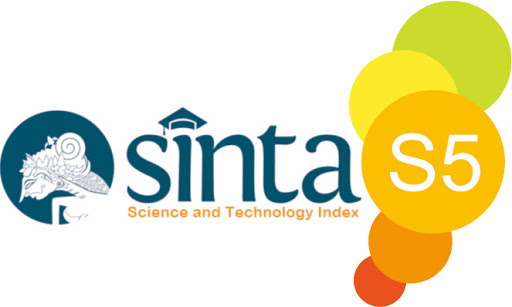Wisata Budaya
Identifikasi Potensi Wisata Budaya Berbasis Masyarakat Di Kota Bandung
DOI:
https://doi.org/10.36276/jap.v3i1.319Keywords:
Warisan Budaya, CBT, Pengembangan Pariwisata, BandungAbstract
Cultural Tourism: Identification of Community-Based Cultural Tourism Potential In Bandung. As a city with many nicknames as City of Heritage, Bandung has cultural tourism assets such as monuments or historical buildings that can be a special attraction for everyone who visits. Experts needed to manage these tourism assets, one of the concepts of tourism asset management can be applied with the local community who are known as Community Based Tourism (CBT). This article tries to identify the potential of existing community-based heritage tourism attractions to support the development of Bandung City as a City of Cultural Tourism. The results of this study are many tourist attractions that can be developed into community-based cultural tourism, one of which is the Braga Square area, but there is still a need for better management such as packaging or tour packages and markets to visit existing tours.
References
Adams, W. M., (1990). Green Development Environment and Sustainability in the Third World (London: Routledge).
Agus Afandi, dkk. (2013). Modul Participatory Action research (PAR). (Surabaya. LPPM.).
Al-hagla, KS (2010). “Sustainable urban development in historical areas using the tourist trail approach: A case study of the Cultural Heritage and Urban Development (CHUD) project in Saida, Lebanon. Cities”,27(4),234–248. https://doi.org/10.1016/j.cities.2010.02.001
Avenzora. (2008). Ecotourism Theory and Practice. Banda Aceh: BRR NAD - NIAS
Becker, Egon, & T. Jahn (eds.), Sustain-ability and The Social Sciences (New York: UNESCO dan ESOI, 1999).
Boyd, SW (2017). “Editorial: heritage trails and tourism. Journal of Heritage Tourism,” 12(5), 417–422. https://doi.org/10.1080/1743873X.2016.1265972
Cantillon, Z. (2020). “Urban heritage walks in a rapidly changing city: tensions between preservation and development on the Gold Coast, Australia”. Journal of Heritage Tourism, 15(2), 149–163. https://doi.org/10.1080/1743873X.2019.1618315
Garrod, Brian, Local Partisipation in the Planning and Management of Eco -tourism: A Revised Model Approach (Bristol: University of the West of Eng -land, 2001).
Hayes, D., & MacLeod, N. (2007). “Packaging places: Designing heritage trails using an experience economy perspective to maximize visitor engagement”. Journal of Vacation Marketing, 13(1), 45–58. https://doi.org/10.1177/1356766706071205
Ministry of Tourism of the Republic of Indonesia. (2018). Development of Culinary and Shopping Tourism. Ministry of Tourism of the Republic of Indonesia.
Mowforth, Martin, & I. Munt, Tourism and Sustainability New Tourism in the World (1998). Murphy, P.E., Tourism: A Community Approach (London:Methuen, 1985).
Regional Regulation of the City of Bandung Number 01 of 2013.
Regional Tourism Development Master Plan for 2012 - 2025.
Richard Sharpley, “Tourism and Sustainable Development: Exploring the Theoretical Divice,” Journal Of Sustainable Tourism, VIII (1), 2000: 1-19. Suansri, Potjana, Community Based Tourism Handbook (Thailand: REST Project, 2003).
Sharfina, Hazrati. (2019). “HERITAGE TRAIL AS A STRATEGY FOR THE DEVELOPMENT OF JANTAN RIVER TOURISM IN SIAK SRI INDRAPURA CITY.” Bandung Institute of Technology: SAPPK.
Suhanadji & T.S. Waspodo, Modernisasai dan Globalisasi (Surabaya: Insan Cendekia, 2004)
Swensen, G., & Nomeikaite, L. (2019). “Museums as narrators: heritage trails in a digital era. Journal of Heritage Tourism,” 14(5–6), 525-543. https://doi.org/10.1080/1743873X.2019.1574803
Timothy, D.J., “Participatory Planning a View of Tourism in Indonesia” dalam Annuals Review of Tourism Research, XXVI (2) 1999.
Yaman, Amat Ramsa & A. Mohd, “Community -based Ecotourism: New Proposition for Sustainable Development and Environment Conservation in Malaysia,” dalam Journal of Applied Sciences IV (4), 2004:583-589.
Downloads
Published
How to Cite
Issue
Section
License
Copyright (c) 2022 Desmala Sari, Evi Novianti , Rifqi Asyari

This work is licensed under a Creative Commons Attribution-ShareAlike 4.0 International License.
Copyright Holder is the Author








